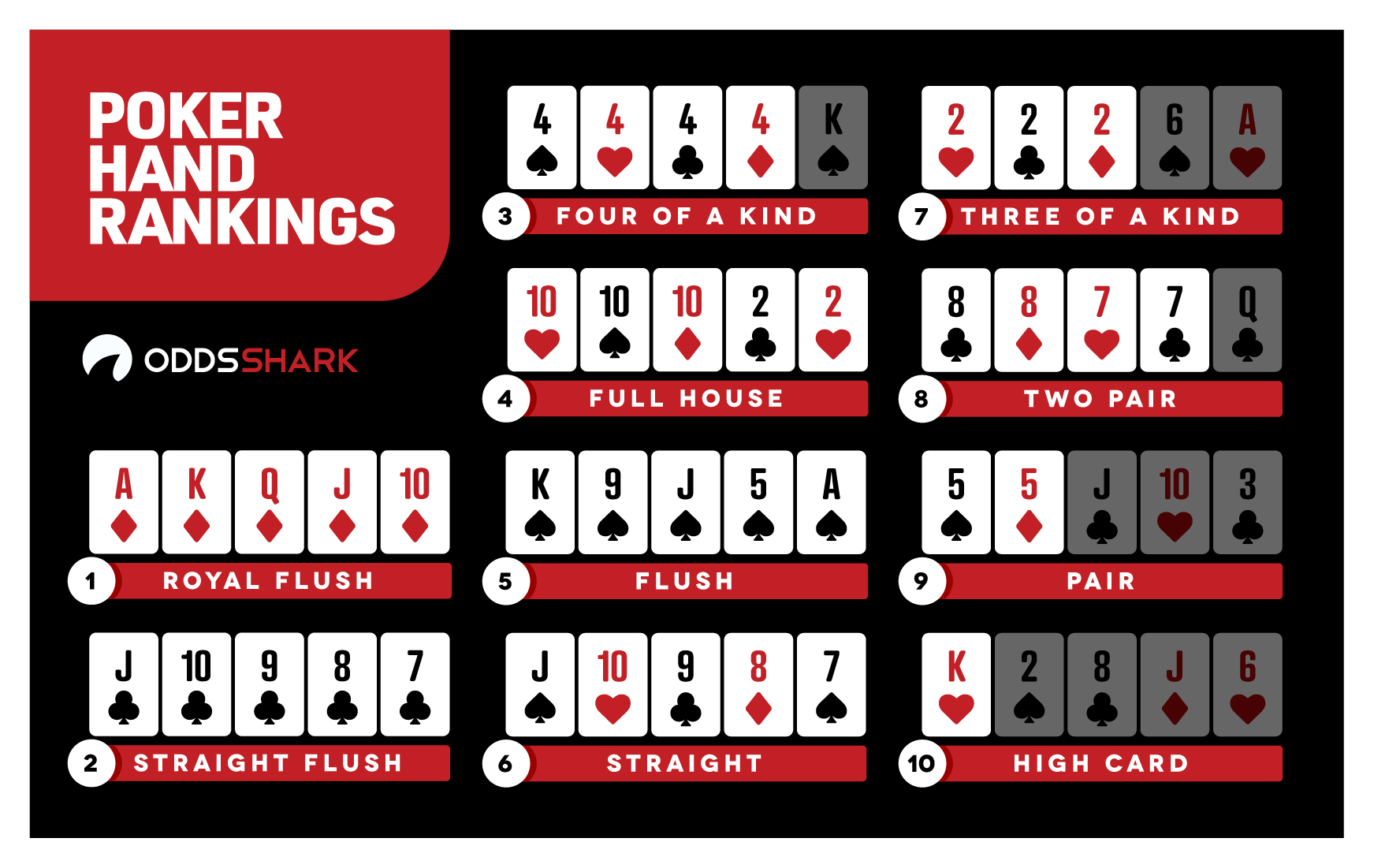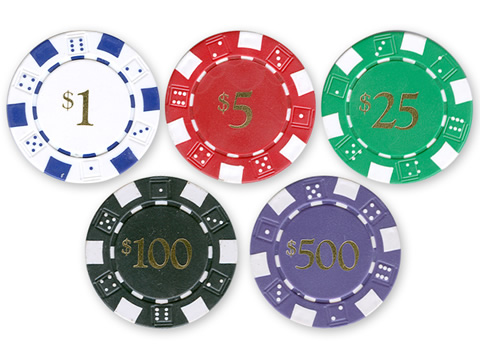Texas Holdem Values
- A limit Texas holdem game with a 4 / 8 limit has bets of $4 during the first two betting rounds and exactly $8 during the final two betting rounds. So each bet and / or raise is exactly $4 before and on the flop. If player 1 bets $4 and player 2 raises she must put $8 in the pot, $4.
- In Texas Holdem the expected value of your first two cards depend on the cards you have, your position on the table, and the number of players at the table. In other words you will be happy to know that in the dealer position (on the button) pocket aces yield an EV of 2.96 when there are ten players at the table.
Expected Value [EV] Theory
Expected Value (EV) in Poker is a very misunderstood concept. Our intention here is to explain “expected value” as simply as possible and to make you a better poker player by using expected value theory in your decision making process. Without going into a technical definition here is an example of an event that will have a zero expected value over time (EV = 0.00) so as to make this idea clear in your mind. Let’s say I asked you to pick a number between one and twenty and that each time you got it right I would pay you $20. You would expect to be able to correctly guess the number once out of every twenty tries. If I were to charge you $1 for each guess and you guessed at the number millions of times then the expected value under these circumstances would be zero. You would win $20 every twenty tries and since it would cost you $1 each try you would end up winning $20 for each $20 you gambled. If on the other hand I charged you more than a dollar for each guess you would be silly to bet against me (your expected value would be negative) and if I charged you less than a dollar for each guess then you would want to play against me all day long for the rest of your life. To put this idea into gambling terms you know that in Roulette there are 36 numbers and usually a 0 and even a 00 on a table. Clearly your EV would be zero if the casino paid you 37 to one (plus your original bet back) or 38 to one in total but in fact they give you 35 to one on your bet (and your bet back) so your expected value to make money over time is negative. And that is assuming you are betting on only one number for each spin. If you bet on multiple numbers on the same spin of the wheel then your expected value is even worse.
Texas hold 'em (also known as Texas holdem, hold 'em, and holdem) is one of the most popular variants of the card game of poker.Two cards, known as hole cards, are dealt face down to each player, and then five community cards are dealt face up in three stages. The stages consist of a series of three cards ('the flop'), later an additional single card ('the turn' or 'fourth street'), and a.
OK now you have a feeling for what we are talking about. How does all this relate to playing Texas Holdem? Glad you asked. In Texas Holdem the expected value of your first two cards depend on the cards you have, your position on the table, and the number of players at the table. In other words you will be happy to know that in the dealer position (on the button) pocket aces yield an EV of 2.96 when there are ten players at the table. This data is based on real data compiled over millions of hands and in real money games. So in the case of our AA in the dealer spot it goes without saying that you will make loads of money with pocket aces. Course we have all lost pocket aces but more often than not we will win the hand and if you have ever played Texas No Limit Holdem then you know that going all in pre-flop with pocket aces is the only time you can be sure to have the one up on all other players in the hand before you have seen a single card. It is expected value theory in Texas Holdem that can help you make a decision to go all in pre-flop (or not). Sometimes you are in a Texas Holdem Tournament and you are running out of chips and it is time to make a bold play (like the all in play). Wouldn’t you rather make a decision that at least you know that in the long run you have a positive expected value with a given hand and not a negative expected value? Sometimes it is just this little difference and this little bit of information that can help you stay in the Tournament until you are in the money as opposed to busting out early. We have taken the liberty to give you all the expected value data for 10 players all the way down to 2 players so that you can make an educated decision in the game at the crucial time instead of gambling blind on any two cards that are yours to play. Ultimately the all in play is the one situation the more talented Texas Hold’em players prefer to avoid in a pre-flop situation (unless they have pocket aces) and by using the all in strategy you will be able to improve your standing in a Texas Holdem Tournament without seeing a flop (hopefully). This is assumed that nobody calls your all in and that you pick up the blinds without a challenge.
As a rule the better the expected value of your first two cards in Texas Holdem the better the chances of you eventually winning the hand. In other words if you have an EV of 1.00 your bet in this situation will get you much more money more often than not as represented by such a strong expected value. You must note that even hands with an EV greater than 1.0 will lose sometimes. But in the long run you will make money with them. Actually the hands with an EV = 0.00 will break even over time so we suggest that you play the two first cards with a positive expected value as often as you can (depending on the situation). If you are in the dealer position with JJ and three people have gone all in for more chips than you have in total and it is your turn to play then you should fold immediately since there is a good probability that someone has a better hand and even though the EV of JJ in the dealer position is 0.89 you have to know that you are up against some very powerful hands.

In the above example we gave you the expected value of JJ in the dealer position in a ten player game. Below you will note the expected value of hands in a ten player game in the dealer position:
|
If you habitually play hands with large negative expected values you should not be surprised that you are losing more than you win. For example here are some seemingly good and bad starting hands in Texas Holdem and their associated negative expected values (in a ten handed game in the dealer position).
|
To show you the difference position makes in expected value please note below the same hands in the big blind position for a ten handed game:
|
In other words in the big blind an 8 7 off suit is much worse (you will lose much more money over time playing this hand) than in the dealers position.
Please send all your comments and questions about expected value to info@texasholdemgame.com. Enjoy Online Texas Holdem and play smart!
What is Value Betting Poker?
- The goal of a “value-bet” is to get your opponent to call with a worse hand. If you have a strong made hand you should probably be betting for value nearly always. It's true sometimes you can think about slow-playing your strong hands, but most of the time, the best option will be to bet. By not betting you risk “losing value” (losing out on money).
- Not “value-betting” at the right time can be just as bad as making a horrible call, when you know you are beat. Both will have the same effect on your win-rate. Weaker players often play strong made hands very passively. While it's true they may still “win” the pot this way, they are actually losing a lot of money in the long-run by not going for more value.
When should you Value Bet?
In order to answer this question we will need to understand the concept of ranges. If you are unsure of what ranges are, or how they operate, go and read that article first.
To be very specific (and don't worry if you don't understand this just yet) -
In order for a value bet to be profitable, your opponent’s calling range must consist of worse hands 50% of the time or more.
It's actually very simple - In order to win money from the bet
When should you Value-Bet? In practice.

If we have a strong value hand we should immediately be betting for value. It doesn't matter if we only have the 3rd nuts, and our opponent could have the nuts. So long as our opponent is going to call with a wide range of worse hands we can just chalk it up to bad luck when our opponent flips over a better hand. Don't make the mistake of checking back just because there is a possibility you are beaten.
With medium strength hands it becomes a little more tricky – this is where skill comes into the game. One of two things will be true in this instance -

- Your opponent’s calling range doesn't have enough worse hands compared to better hands. Value-betting won't be profitable, you should fold.
- It's close, but you still think your opponent’s calling range contains slightly more worse hands than better hands. Value-betting in this spot is referred to as making a “thin value-bet”. Making thin value-bets like this is one thing that separates the good players from the really-good ones. You will only able to find these “thin-value” spots if you have done a good job of putting your opponent on a range.
Value Betting Example
CO ($10)
MP ($10)
UTG ($10)
Hero ($10)
SB ($10)
BU ($10)
Pre-flop: Hero is BB with ak
3 folds, BU calls $0.10, SB calls $0.5, Hero raises to $0.50, BU calls $0.40, SB folds.
Flop: ($1.10) k98
Hero bets $0.80, BU calls $0.80.
Texas Hold'em Card Values
Turn: ($2.70) 8
Hero bets $1.95, BU calls $1.95
River: ($6.60) 4
Hero bets $4.40, BU calls $4.40
This is a good example of value-betting on all three streets – even though we could be behind by the river.
Pre-flop
We have a strong starting hand, and we want to raise. There is a good chance one of our two opponents will continue with a wide variety of worse hands. We raise for value pre-flop.
Flop
We flop top pair top kicker; our first instinct should be to go immediately for value. Slowplaying here would be a big mistake. There are many worse hands and draws that our opponent can call a bet with. Any straight draw, any flush draw, and any worse king. We bet for value.
Turn
The turn comes an 8. It's certainly true our opponent could have an 8 if he called preflop with something like As8s and didn't want to fold on the flop. It's pretty unlikely though. Ironically, the very fact that an 8 has hit on the turn means our opponent is less likely to be holding an 8, because there are now only 2 left in the deck. Our opponent still has all the draws and worse kings in his range; we fire again for value.
Texas Holdem Values

River
The river comes 4, completing a possible flush draw. In some instances this might be a good spot to check-call if you think your opponent will bluff with things like Ah5h, or TdJd. Let's assume this opponent never bluffs; what is the best play, check or bet? A lot of players might get scared here - after all your opponent may hold something like TcJc for the flush or 99 for a slow-played full house. It’s unlikely however. Your opponent would probably have raised any strong made hands (2pair or better) on the flop or turn, and back-door draws only hit a very small percentage of the time. On the other hand your opponent can still call with any worse king, KQ, KJ, KT, Ks6s, Ks5s – perhaps even any pair depending on how bad he is QQ, JJ, 9x etc. So long as you think there are more worse hands calling a bet than better ones (I.e more than 50%), this is a good spot to go for some thin value.
If the river had come the q this would be a very different story. Because unlike the 4, the q hits a huge amount of our opponent’s range, likely giving him the best hand.